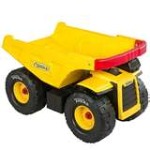 photo by Tim Mensch
|
"I know you really like to do the dishes mom, so I hope you don't mind, but I just felt like doing them," said a twelve-year-old Dylan to his mom once.
Read more at I hope you don't mind
and more about dishes; Deb's dad; living in Alaska without running water; appreciation and contentment: SandraDodd.com/dishes, third item down or so.
From a journal entry Nov 1996 when Dylan was four years old. I had something to do and Dylan stayed home with his dad.
Me:"What did you guys do today?"
Dylan: "We played and played!"
Me:"Give me the highlights."
Dylan:"So many tarantulas bit my butt you wouldn't believe."
Me: "Do I want to know more about this?"
Dylan: Actually! (long pause) ...probably not, but let me tell you, daddy is a bad man to tarantulas!"
In response to a mom advocating limits and control:
Maybe it would help to consider these things in very basic terms. Are there ways of living with people that can make life better, happier, more peaceful? Are there ways of living that can make life worse? Doesn't it make sense to choose to live together in a way that will make life better? Most people want to be treated with consideration, patience, kindness and respect. Children don't deserve less consideration just because they're small. They deserve *more* patience and kindness and consideration because they are young and still learning.
If you want a happy partnership does it make sense to be the worst kind of partner? If you take away belongings, or throw someone's possessions in the garbage, if you refuse to cook in order to manipulate another person, are you being a good partner? How will a child learn to be a good partner from a terrible example? Wouldn't you want a helpful partner, a kind partner, one who is patient with you, makes life seem better and more fun? Be the kind of partner you would like to have.
It's unrealistic of you to expect your child to be an adult with all the concerns and priorities adults have. She shouldn't have to, for one, and she's not yet ready to. If a clean house is important to you then *you* clean the house. Think of it as a gift you can give to your child that will contribute to her health and convenience. It's part of what a parent *should* provide for a child. Shelter doesn't only mean a roof; it means a safe place of peace and healthfulness.
If you could not have both or if it was rare to have both, consider which would be more important, having your daughter's help with housework or having a warm and loving relationship with her. Which will serve her better? Children who do not have a loving connection with parents *will* look for one elsewhere. They may find it with people who don't have their best interest at heart.
If you have been fighting over chores it may be a long time before she feels like helping you. But for the rest of the time you have with her, you can be a good example of a person who happily takes care of her home and who respects and values her child above housework. That will have benefits for your child well beyond required chores.
If your daughter doesn't want to leave something interesting to go to the table to eat, take food to her. Sit with her and eat together. That's the same kind of sharing you could do at a table. Food eaten in front of the TV or computer with a happy mom who is interested in you is much better than food shared in grudging silence and anger. Wouldn't you be grateful to a friend who brought you food if you were in the middle of something important? I'm always grateful when my husband brings home a pizza or Chinese food when I'm having a really busy day.
Get another computer as soon as you can. If you had only one plate wouldn't you get another? If you had only one chair, wouldn't you get another? Don't fight over life's conveniences. What a terrible waste of time.
Choosing and power

Deb Lewis wrote:
Once you’re really listening to your kids and not your sense of injustice, you’ll find that answering them and interacting with them is intellectually rewarding and stimulating and fun. It’s not something you *have* to do. It’s something you *get* to do for a very little while. You can’t change this need your kids have right now. You can only change how you see it, how you think about it and meet it. And that’s good because that’s entirely in your power to do.
but it was a good lead-in to this page:
SandraDodd.com/gettingit
photo by Sandra Dodd, of a railyard we visited
because my son Marty wanted to go there
Suggestions for creating abundance when funds are low—a list of calming, simple ideas for frazzled parents short of funds
Becoming Courageous: How to develop the courage and confidence it takes to unschool.
Clear comments on the addictiveness of sugar
How a Monster and a Dead Guy Named Howard
Led a Boy to a World of Connections (2006)
Deb's great response to someone arguing for limits
Unschooling and the Neanderthals
Deb's riff on "How long has unschooling been around?"
Does TV cause violence? (response to a question)
Sympathetic, Empathetic, or Simply Pathetic?—desensitization and empathy
Cultural Ideas and Change—how accepted truths (memes) make unschooling difficult to see and believe
The Evidence of Years—hindsight, milestones, and big differences
We understand we don't always have a choice about what life brings us, but we always have a choice about how we face it. And we face it wearing big red clown noses.
Not Even Close to All For McNaught
"My son Dylan has been voting for years. According to the Twenty sixth Amendment he doesn't have the right to vote until he's eighteen years old, but we amended that amendment, at least in our own minds...."
 Deb Lewis on Imagination
Deb Lewis on Imagination 

|
The Importance of Sharing our Real Unschooling Lives
"Now, Evildoers, Eat My Justice!" (and in between there, a typical day at Deb's house a few years back)
Protein Snack Ideas for Picky Kids
Deb Lewis's List of Things to Do in the Winter
Summary review of John Holt's books:
Teach your Own
Never Too Late
A Life Worth Living
Unguided Discovery, 2007 article on discoveries and explorations
Review and commentary on Free To Learn: Why Unleashing the Instinct to Play Will Make Our Children Happier, More Self-Reliant, and Better Students for Life, by Peter Gray
Because I love Deb Lewis’s facility with twisting English into balloon dogs if she feels like it, I asked her to write something with parts I provided....
original, longer, quotes about what ended up on this page: Phrases to Hear and Avoid
(similar collections from over 20 others of my favorite contributors to online unschooling discussions I was in)